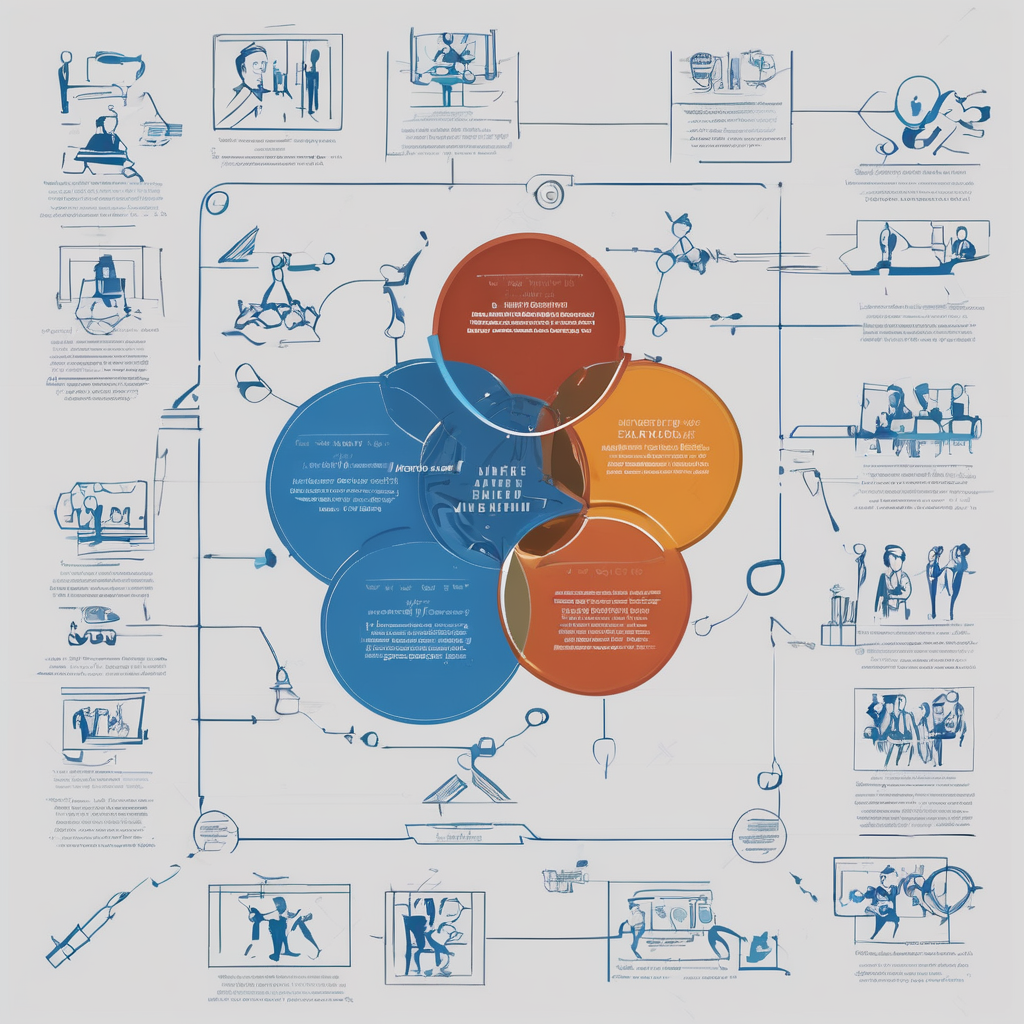Selecting the right CRM system is vital for UK real estate agencies aiming to streamline operations and enhance client relationships. Consider aspects like scalability, integration capabilities, and user-friendliness. Understanding your agency’s specific needs will help you make an informed decision that boosts productivity and fosters growth. This guide highlights essential factors to ensure your CRM choice aligns perfectly with your goals.
Understanding CRM Systems for Real Estate Agencies
In the fast-paced world of real estate, CRM systems have become indispensable tools for agencies aiming to streamline their operations and enhance client relationships. These systems are designed to manage interactions with current and potential clients, ensuring that real estate agencies can efficiently track leads, automate tasks, and personalise communication.
Topic to read : Essential Factors to Consider When Establishing a BYOD Policy for Your Marketing Agency in Bristol
Real estate agencies in the UK market face unique challenges, such as navigating complex property regulations and catering to diverse client needs. This makes the adoption of CRM systems even more critical. By providing a centralised platform for data management, CRM systems help agencies overcome these hurdles, offering solutions like automated compliance checks and customisable client profiles.
The benefits of utilising CRM systems tailored to the real estate sector are manifold. They offer enhanced lead management, improved customer service through personalised interactions, and increased efficiency by automating routine tasks. Additionally, CRM systems provide valuable analytics, enabling agencies to make informed decisions and optimise their marketing strategies. For UK real estate agencies, these systems are not just tools but strategic partners in achieving business success.
Additional reading : Key Strategies for Successfully Launching Telemedicine in UK Healthcare Clinics
Key Features to Look for in a CRM System
When selecting a CRM system for your real estate agency, focusing on key features can significantly enhance your operations. One crucial aspect is the integration capabilities. A robust CRM should seamlessly connect with other essential software, such as Multiple Listing Services (MLS) and marketing tools. This ensures that data flows smoothly across platforms, reducing manual entry and improving accuracy.
Another vital feature is user-friendliness. Real estate agents need a system that is intuitive and easy to navigate. A complex interface can hinder productivity and lead to frustration. Look for CRM systems that offer straightforward dashboards and clear navigation paths, allowing agents to focus more on client interactions and less on technical issues.
Customization options are also essential. Every real estate agency has unique needs, and a one-size-fits-all approach rarely works. A CRM that allows you to tailor features, such as client profiles and reporting tools, to fit your specific requirements can greatly enhance efficiency and service quality.
In summary, prioritising these features—integration capabilities, user-friendliness, and customization—will ensure that your CRM system is not just a tool but a strategic asset in your real estate operations.
Scalability and Future-Proofing Your CRM Choice
In the dynamic real estate industry, CRM scalability is crucial for agencies anticipating growth. A scalable CRM system ensures that as your agency expands, the technology can accommodate increased data, users, and functionalities without compromising performance.
Growth potential is a primary consideration when evaluating CRM systems. Look for solutions that offer modular features, allowing you to add or upgrade components as needed. This adaptability is essential for meeting evolving business needs and staying competitive in the market.
Consider case studies of agencies that have thrived using scalable CRM solutions. For instance, a mid-sized agency in London experienced a 30% increase in lead conversion rates after adopting a scalable CRM. They customised the system to integrate advanced analytics and automated workflows, which streamlined their operations and improved client engagement.
To ensure future-proofing, select a CRM that supports integration with emerging technologies, such as artificial intelligence and machine learning. This foresight will enable your agency to leverage new tools and trends, maintaining efficiency and relevance in a rapidly changing environment.
By prioritising CRM scalability and growth potential, real estate agencies can effectively manage expansion and adapt to future challenges.
Compliance with UK Regulations
Navigating UK regulations is crucial for real estate agencies using CRM systems. These systems must adhere to laws such as the General Data Protection Regulation (GDPR), which governs how personal data is collected, stored, and used. Ensuring compliance with these regulations is not just a legal obligation but also a trust-building measure with clients.
Data protection is a significant concern in the real estate sector. Agencies handle sensitive information, including client identities and financial details. A CRM system must incorporate robust security measures to protect this data from breaches. Features like encrypted data storage and secure access controls are essential to safeguard client information and maintain compliance.
To address compliance issues, agencies should conduct regular audits of their CRM systems. These audits help identify vulnerabilities and ensure that all data handling processes meet legal standards. Additionally, training staff on data protection best practices is vital. This ensures everyone understands their role in maintaining compliance and protecting client data.
By focusing on these aspects, real estate agencies can confidently use CRM systems without falling foul of UK regulations, thus enhancing their operational integrity and client trust.
Cost-Effectiveness of CRM Systems
Understanding the cost-effectiveness of CRM systems is crucial for real estate agencies aiming to maximise their investment. CRM costs can vary significantly depending on the features and scalability offered. Agencies should consider budget considerations carefully to ensure they select a system that provides the best value for money.
Potential costs associated with CRM systems include initial setup fees, subscription charges, and costs for additional features or users. It’s important to factor in these expenses when planning your budget. Some systems might also require additional investments in training or integration with existing tools.
When comparing the ROI of various CRM options, agencies should assess how effectively each system enhances operations and client engagement. A CRM that automates routine tasks and improves lead management can significantly boost productivity, leading to higher returns.
To achieve cost-effectiveness, consider these tips for negotiating pricing with CRM vendors:
- Request a demo to evaluate the system’s features and suitability.
- Ask for discounts on long-term subscriptions or bulk user licenses.
- Negotiate customisation options to tailor the system to your specific needs without unnecessary extras.
By strategically managing CRM costs, real estate agencies can optimise their investment and enhance operational efficiency.
User Support and Training Resources
Incorporating a CRM system into your real estate agency requires robust user support to ensure smooth adoption and effective usage. Adequate support facilitates the transition, minimising disruptions and enhancing user confidence in the system.
Training resources play a crucial role in this process. Comprehensive onboarding programs and accessible training materials, such as video tutorials and user manuals, equip staff with the necessary skills to leverage CRM functionalities fully. These resources should be regularly updated to reflect software updates and new features.
When selecting a CRM, evaluate the vendor’s support options. Look for providers offering 24/7 user assistance through multiple channels, including live chat, phone, and email. This ensures that help is readily available whenever issues arise.
Additionally, community forums can be invaluable. They offer a platform for users to share experiences, solutions, and best practices. Engaging with these communities can provide insights into common challenges and innovative ways to utilise CRM systems effectively.
In summary, prioritising comprehensive CRM support and accessible training resources is essential for maximising the benefits of your CRM investment and ensuring a seamless user experience.
Case Studies and Success Stories
Exploring CRM case studies in UK real estate reveals valuable insights into successful implementations. One noteworthy example is a London-based agency that transformed its operations by integrating a CRM tailored to real estate. This system enabled the agency to automate lead tracking and personalise client interactions, resulting in a 40% increase in client retention.
Success stories from other agencies highlight the diverse applications of CRM systems. A mid-sized firm in Birmingham used CRM analytics to identify market trends, allowing them to strategically target potential buyers and sellers. This innovative approach led to a significant boost in sales and market share.
Lessons learned from these real estate examples underscore the importance of customisation and user training. Agencies that invested in tailoring CRM features to their specific needs and provided comprehensive training saw higher adoption rates and enhanced productivity. Overcoming challenges, such as data migration and user resistance, was crucial in achieving these outcomes.
These case studies demonstrate that with the right CRM strategy, real estate agencies can streamline operations, enhance client relationships, and ultimately drive business growth. The innovative uses of CRM systems continue to set new standards in the industry.






